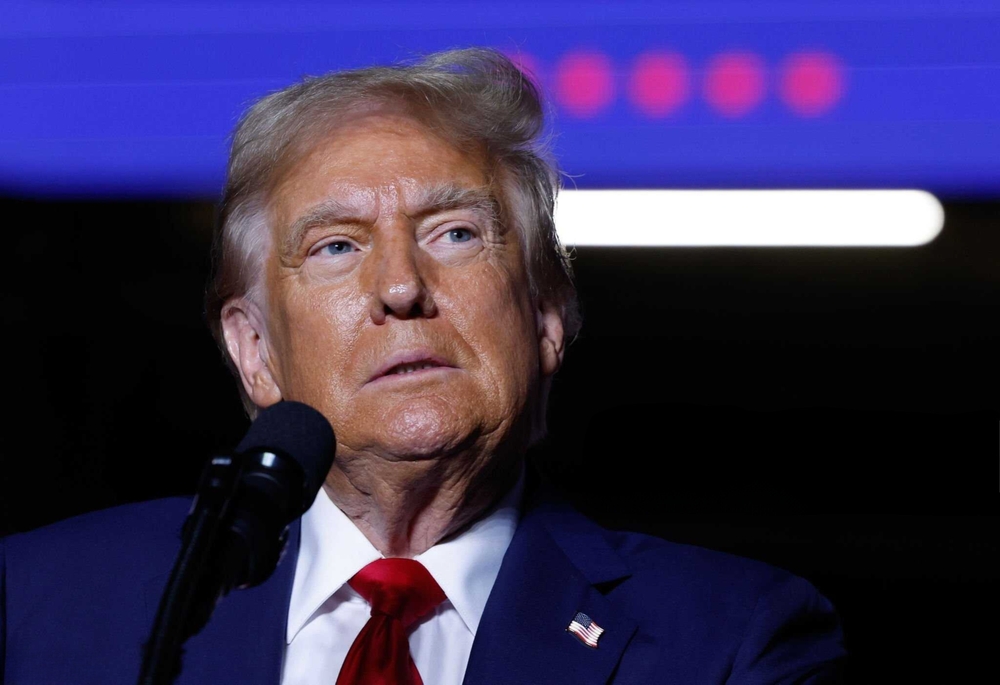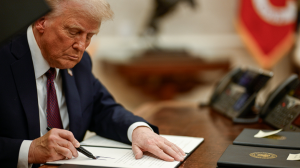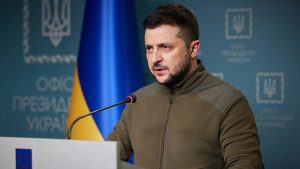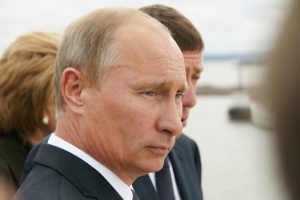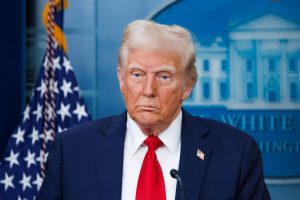A leaked agreement reveals Trump demanding 50% of Ukraine’s resources in exchange for U.S. support.
Others are reading now
A confidential draft agreement reportedly presented to Ukrainian President Volodymyr Zelenskyy outlines a staggering economic proposal that would give the United States control over 50% of Ukraine’s resource revenues, The Telegraph reported on February 17.
Marked “Privileged & Confidential,” the February 7 document details a $500 billion compensation package, surpassing some of history’s largest reparations agreements.
The proposal suggests the creation of a joint investment fund between the U.S. and Ukraine to oversee mineral resources, energy infrastructure, ports, and export licenses — a move framed as protecting Ukraine from “hostile actors” in its post-war reconstruction.
Under the proposal, Washington would gain:
Also read
-
50% of revenues from Ukraine’s natural resources.
-
Equal financial stake in all new mining and export licenses.
-
Priority purchasing rights for rare earth elements, oil, and gas.
-
Legal authority under New York law, allowing the U.S. to direct Ukraine’s economic policies.
One source close to the negotiations described the proposal as a major threat to Ukraine’s economic independence: “This clause effectively means, ‘Pay us first, then feed your children.’”
While Zelenskyy had previously suggested offering the U.S. a stake in Ukraine’s mineral sector to encourage more military aid, sources say the scale of Washington’s demand was unexpected.
The deal reportedly sparked alarm in Kyiv, as officials debated whether accepting U.S. economic control was the only path to securing continued support.
Trump: “They May Be Russian Someday”
Speaking to Fox News, President Donald Trump confirmed that Ukraine had “essentially agreed” to a $500 billion resource deal, arguing that the U.S. had already contributed $300 billion to Ukraine’s defense.
“They have tremendously valuable land—rare earths, oil, gas, other things,” Trump said.
He warned that without a deal, Ukraine risks further instability: “They may make a deal. They may not make a deal. They may be Russian someday, or they may not be Russian someday. But I want this money back.”
Despite Trump’s $300 billion claim, official congressional records indicate U.S. aid to Ukraine totals $175 billion, much of it structured as loans under the Lend-Lease Act or allocated to U.S. weapons manufacturers.
The scale of U.S. economic control outlined in the agreement has drawn comparisons to historical reparations, with some experts noting it exceeds the economic burden imposed on Germany after World War I.
Notably, Russia faces no such financial conditions in the proposal, leading analysts to question whether Ukraine is being forced into an unfair arrangement.
A Global Power Play
Ukraine holds some of the world’s largest reserves of lithium, titanium, and rare earth elements, crucial for batteries, electronics, and energy production.
With China dominating the rare earth market, Ukraine’s deposits have become a focal point for global supply chains. However, geopolitical instability, extraction challenges, and shifting energy markets could make the $500 billion compensation deal a difficult long-term commitment for Kyiv.
The deal’s aggressive terms appear in line with Trump’s well-documented negotiation tactics.
In The Art of the Deal, he writes: “I aim very high, and then I just keep pushing and pushing and pushing to get what I’m after.”

